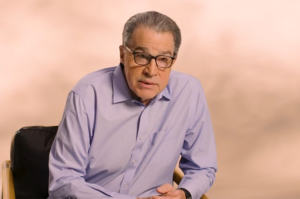Anglican Head Clarifies Sharia Remarks, Addresses Lambeth Conflict
The Church of England General Synod opened in central London Monday with a wide-ranging address from the Archbishop of Canterbury on his recent Sharia law comments and the forthcoming Lambeth Conference.
In a clear display of support for their leader, Synod members broke into rapturous applause when Dr. Rowan Williams entered the assembly hall to open three and a half days of debate and Church legislating.
Williams began his address by saying he takes full responsibility for any distress that might have been caused by "unclarity" or a "misleading choice of words" in a lecture he gave at the Royal Courts of Justice on religious rights and the accommodation of aspects of Sharia law in the British legal system last Thursday.
He stopped short of retracting his comments, however.
"I believe quite strongly that it is not inappropriate for a pastor of the Church of England to address issues around the perceived concerns of other religious communities and to try and bring them into better public focus," he told the Synod – although the Archbishop later conceded that his efforts in this instance had been "clumsily deployed."
Williams drew fire last week when he said the introduction of aspects of sharia in Britain was unavoidable. His comments came as the Muslim population, currently at 1.8 million, continues to grow in Britian.
The Archbishop called his lecture last week an "opening contribution" to the debate around Islamic law and said he did not advocate "parallel jurisdictions." He recommended that Christians and people of other faiths come together to reflect further on issues of faith and law.
Lambeth
After defending his remarks, Williams turned to the original agenda for his Synod address – the Lambeth Conference which takes place in July.
Following the public launch of the Lambeth Conference program last month, the Archbishop said the conference aimed "both to address the major issues and to refresh and inspire those who will attend."
"The twofold focus is equipping bishops for leadership and strengthening the identity and confidence of the communion," he told the Synod.
The decennial conference of senior Anglican clergy will take place this July amid serious divisions over Scripture and homosexuality.
He continued, "The primary need will be to get to know each other sufficiently well to confront the divisive matters that are around, and so there will be a larger number of slightly smaller groups."
One of the key debates this week will take place on the draft Anglican Covenant, which was issued a few weeks ago by the Anglican Covenant Design Group after a meeting in London.
The document attempts to uphold the autonomy of the 38 provinces of the Anglican Communion, while at the same time asking for their voluntary commitment to a process of joined-up deliberation whenever disputes occur over contentious issues.
A number of conservative clergy have already announced that they will not be attending the Lambeth Conference but instead be heading to Jerusalem for their own gathering to hash out a plan for the future of the Anglican Communion.
Nigerian Archbishop Peter Akinola and Australia's Archbishop Peter Jensen are among those who have confirmed their attendance at the Global Anglican Future Conference (GAFCON), which opens just ahead of Lambeth.
Some conservatives in the 77 million-strong Anglican Communion are upset over the attendance of a number of liberal clergy at Lambeth, including the leadership of the U.S. Episcopal Church, which has attempted to embrace fully homosexuality within the Church in recent years.
The Archbishop told the Synod, "I respect the consciences of those who have said they do not feel able to attend because there will be those present who have in their view acted against the disciplinary and doctrinal consensus of the communion.
"Needless to say, I regret such a decision, since I believe we should be seeking God's mind for the Communion in prayer and study together."
He said that the decision of some to remain absent from the conference only showed the deep differences over theology and ethics "that have so strained our connections."
Williams continued, "It also reflects, uncomfortably for us, some of the legacy of hurt that is felt by some of our provinces at what is experienced as patronizing or manipulative or insensitive actions and attitudes on the part of many of the churches of the 'West' or 'North' – not only the Episcopal Church in the USA, but us as well.
"That's hard to hear, but we have to hear it and to offer apologies and seek for better understanding."
"Lambeth can't be the end of the story," he added, "and if at Lambeth we try to do proper justice to the idea of a Covenant, it must be in the light of that need for a more serious and profound mutuality between us all."
Major debates on mental health, casinos, detention without charge, Crown appointments and Anglican-Roman Catholic dialogue will take place later in the week at the General Synod.



























